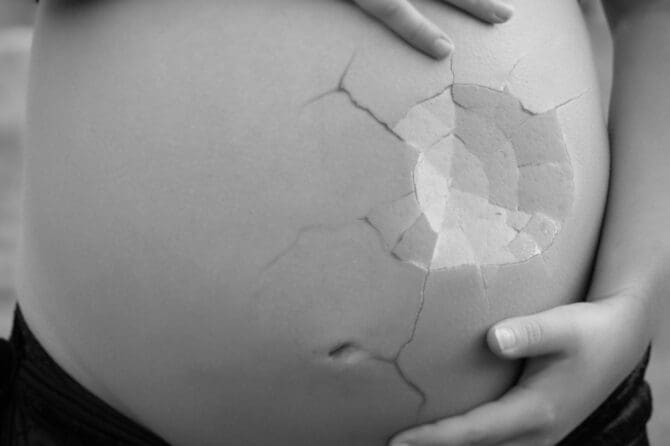Many new mothers are battles over whether or not to breastfeed their babies. While there are many benefits to formula, there are even more to breastfeeding. Not only is it healthier for the baby, but it’s also been shown to have benefits for the mother as well. Breastfeeding has been shown to help babies fight off infections and illnesses, as well as reducing their risk of Sudden Infant Death Syndrome (SIDS). For mothers, breastfeeding has been linked to a reduced risk of ovarian and breast cancer. It can also help you lose weight post-pregnancy and provides bonding time for you and your baby.
1. Breastfeeding provides the perfect nutrition for your baby. 2. Breastfeeding can help you and your baby bond. 3. Breastfeeding can help your baby sleep better. 4. Breastfeeding can help reduce the risk of SIDS. 5. Breastfeeding can help you lose weight after baby is born. 6. Breastfeeding can help reduce the risk of certain cancers. 7. Breastfeeding can save you money.
1. Breastfeeding provides the perfect nutrition for your baby.
Breastfeeding provides the perfect nutrition for your baby. The nutrients in breastmilk are designed specifically for human babies, and no other food can match its perfect composition. Breastmilk is also easier for your baby to digest than formula, and it helps to boost their immune system. There are also many benefits for mom when she breastfeeds her baby. Breastfeeding can help to improve bonding between mother and child, and it can also help to reduce stress and anxiety. Breastfeeding can also help to shrink the uterus back to its pre-pregnancy size, and it can help to burn calories and lose weight post-pregnancy.
2. Breastfeeding can help you and your baby bond.
When a baby is born, they are looking for comfort and a way to feel close to their mother. Breastfeeding is the perfect way to help them feel safe and close to you. It is a special time for both of you to share. Your baby will be able to feel your heartbeat and hear your voice while you are breastfeeding. This can help them feel calm and relaxed. It is also a great way for you to bond with your baby. You may be surprised at how much time you spend breastfeeding. It can be a great way to relax and unwind after a long day. It can also be a great way to get to know your baby. You will be able to learn their different cries and know when they are hungry or tired. Breastfeeding can also help you lose weight after pregnancy. It can help you burn calories and give you energy. It is also a good way to reduce stress. There are many benefits of breastfeeding for both you and your baby. It can help you bond, lose weight, and reduce stress. It is a great way to spend time with your baby and get to know them.
3. Breastfeeding can help your baby sleep better.
newborns who are breastfed tend to sleep more soundly and for longer periods of time than those who are not breastfed. This is because breastfeeding releases a hormone called prolactin, which has a soothing effect on both mother and baby. In addition, the physical act of breastfeeding often lulls baby to sleep. There are a few possible explanations for why breastfeeding helps baby sleep better. One is that the prolactin released during breastfeeding has a calming effect. Additionally, the physical act of breastfeeding can be soothing, and the close contact between mother and baby can promote a sense of security. Finally, the milk itself contains tryptophan, an amino acid that has been shown to promote sleep. Breastfeeding can help baby sleep better in a few different ways. First, the prolactin released during breastfeeding has a calming effect. Second, the physical act of breastfeeding can be soothing, and the close contact between mother and baby can promote a sense of security. Finally, the milk itself contains tryptophan, an amino acid that has been shown to promote sleep. Because of these reasons, breastfeeding is often recommended for newborns in order to help them sleep better.
4. Breastfeeding can help reduce the risk of SIDS.
Sudden Infant Death Syndrome (SIDS) is the leading cause of death in infants one month old or younger. Though the cause of SIDS is still largely unknown, researchers have identified several risk factors. One of these risk factors is whether or not the infant was breastfed. Studies have shown that breastfeeding can reduce the risk of SIDS by as much as 50%. The exact mechanism is still unknown, but it is believed that the antibodies present in breast milk protect the infant from respiratory infections, which may be one of the leading causes of SIDS. In addition, breastfeeding has been shown to reduce the incidence of other conditions that can lead to SIDS, such asurethral prolapse, gastroesophageal reflux, and obstructed airways. It is important to note that even if an infant is not exclusively breastfed, the risk of SIDS is still reduced. Any amount of breastmilk that the infant consumes will provide some protection. For this reason, it is recommended that infants be breastfed for at least the first six months of life. Though the exact cause of SIDS is still unknown, there are several things that can be done to reduce the risk. One of these is breastfeeding. Breastfeeding has been shown to reduce the risk of SIDS by as much as 50%. Even if an infant is not exclusively breastfed, the risk of SIDS is still reduced. For this reason, it is recommended that infants be breastfed for at least the first six months of life.
5. Breastfeeding can help you lose weight after baby is born.
It’s no secret that pregnancy and childbirth can take a toll on a woman’s body. Between the added weight, the stretched skin and the changed hormone levels, many women feel less than their best after giving birth. One of the best things about breastfeeding, though, is that it can help you lose weight after the baby is born. When you breastfeed, your body burns calories to produce milk. This means that you’re actually burning more calories when you’re nursing than you are when you’re not. In fact, some studies have shown that women who breastfeed can burn up to 500 calories a day! In addition to helping you burn calories, breastfeeding can also help you lose weight in other ways. First, it can help shrink your uterus back to its pre-pregnancy size. Second, it can help your body get rid of the excess fluids that it retaining during pregnancy. Finally, it can help boost your metabolism, so you’re burning more calories even when you’re not breastfeeding. So, if you’re looking to lose weight after baby, breastfeeding is a great option. Not only will it help you burn calories, but it will also help you shrink your uterus and get rid of excess fluid. Plus, it’s a great way to bond with your baby.
6. Breastfeeding can help reduce the risk of certain cancers.
Breastfeeding reduces the risk of cancer in both mothers and babies. Some studies have shown that breastfeeding can decrease the risk of breast cancer by as much as 30 percent. Additionally, breastfeeding can also reduce the risk of ovarian cancer by as much as 25 percent. Not only does breastfeeding protect mothers from cancer, but it also protects babies. One study showed that babies who were breastfed had a lower risk of developing leukemia than those who were not. There are two main reasons why breastfeeding reduces the risk of cancer. First, breastfeeding reduces the amount of time a woman is exposed to estrogen. Estrogen is a hormone that can promote the growth of cancer cells. By reducing the amount of time a woman is exposed to estrogen, breastfeeding can help reduce the risk of cancer. Second, breastfeeding can help the body get rid of cancer-causing toxins. When a mother breastfeeds, her body produces a hormone called prolactin. Prolactin helps the body get rid of toxins that can cause cancer. In addition to reducing the risk of cancer, breastfeeding offers many other benefits for both mothers and babies. Breastfeeding can help boost a mother’s immune system, which can help her stay healthy and reduce her risk of getting sick. Additionally, breastfeeding can help a baby’s immune system mature and become stronger. Breastfeeding can also help a baby’s digestive system develop and function properly. There are many benefits of breastfeeding, both for mothers and babies. Breastfeeding can help reduce the risk of cancer, boost a mother’s immune system, and help a baby’s digestive system develop properly.
7. Breastfeeding can save you money.
Breastfeeding can save you money in a few ways. One is that you don’t have to buy formula. Even if you are supplementing with formula, you are using less of it than you would if you were not breastfeeding at all. Additionally, breastfeeding can save you money on medical bills. Breastfeeding has been shown to reduce the incidence of certain illnesses in both babies and mommies. Finally, breastfeeding can save you money on child care. If you are able to breastfeed during the workday, you may not need to pay for child care for your baby during that time.
Breastfeeding is one of the best things that a mother can do for her child. It provides many benefits for both the mother and the child. The mother’s milk is rich in nutrients and antibodies, which help to protect the child from illnesses. Breastfeeding also helps to bond the mother and child, and it can help to reduce the risk of obesity and other health problems later in life.











